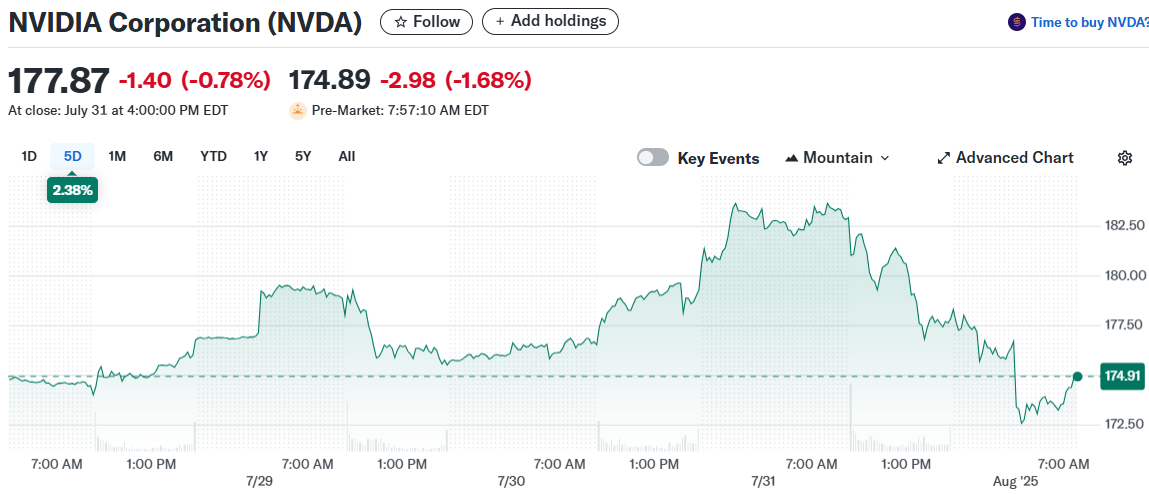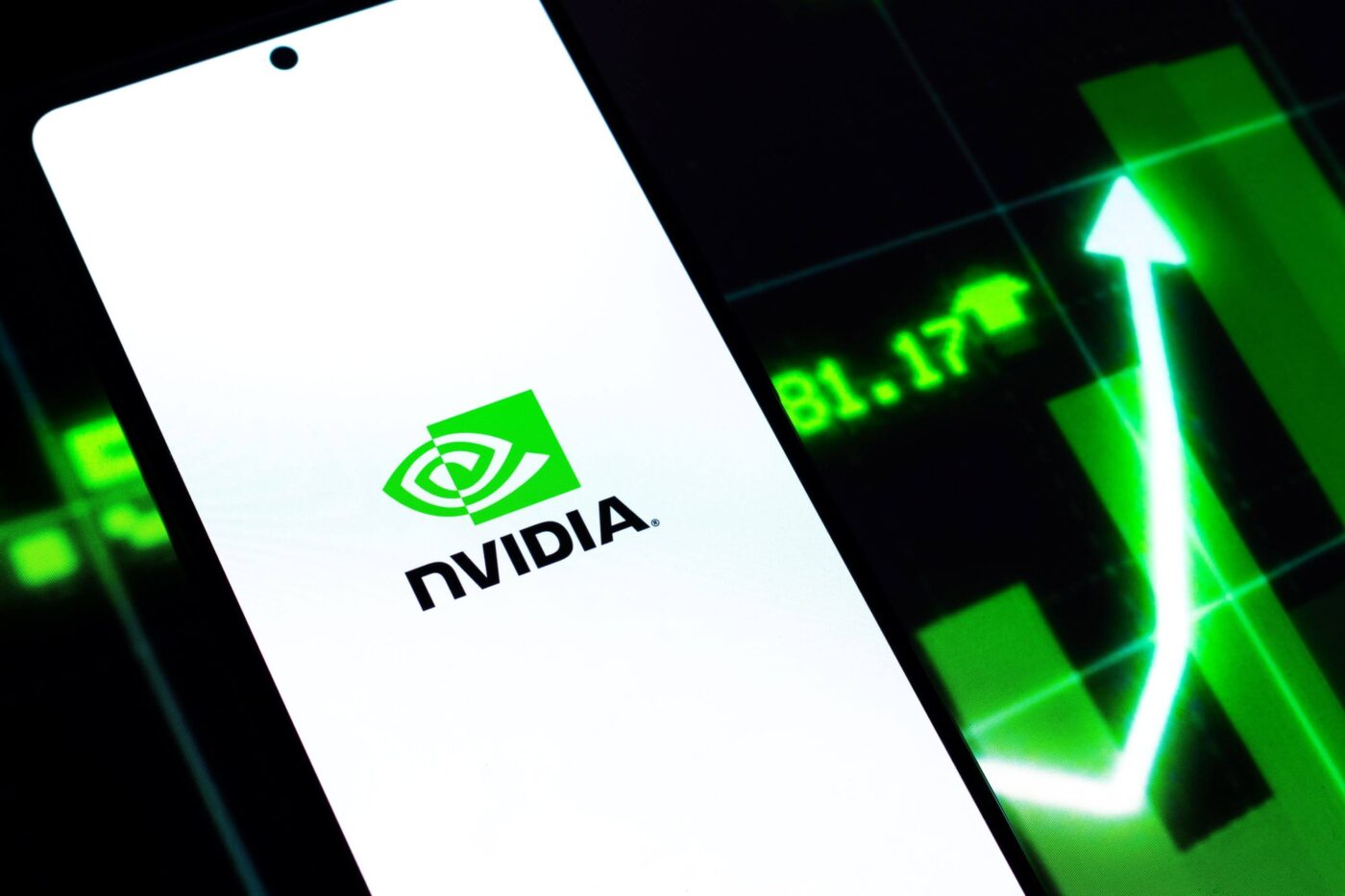TLDR
- Alphabet increased its 2025 capex forecast by $10 billion to $85 billion, driven by Google Cloud’s $106 billion order backlog from AI customers
- Google Cloud revenue grew 32% year-over-year with Gemini AI usage exploding 35 times during Q2 2025
- Nvidia hit a new all-time high of $183.30 before closing down 0.8% at $177.87 on strong trading volume
- Wall Street projects Nvidia could generate record $200 billion revenue in fiscal 2026, up 53% from previous year
- Chinese regulators are reviewing Nvidia’s H20 AI chips over security concerns, creating potential market headwinds
Nvidia stock experienced a volatile trading session on July 31, reaching a new all-time intraday high of $183.30 before pulling back to close at $177.87, down 0.8%. The trading activity came with strong volume of 216.9 million shares, about 12.5% above the three-month average.

The chipmaker’s market performance reflects growing optimism around AI infrastructure spending. This optimism received a major boost from Alphabet’s recent earnings report and guidance update.
On July 23, Alphabet reported strong second-quarter results for 2025. Google Cloud revenue jumped 32% year-over-year, accelerating from 28% growth in the first quarter.
The cloud division’s momentum stems largely from AI demand. Alphabet reports that over 85,000 enterprises are now building AI software using its Gemini models through Google Cloud.
Gemini usage exploded during the quarter. The company saw a 35-times increase in Gemini usage compared to the same period last year.
This surge in AI adoption translates directly into infrastructure needs. Google Cloud’s order backlog for data center capacity grew 38% during the second quarter to reach $106 billion.
Alphabet Raises Infrastructure Spending
CEO Sundar Pichai responded to this demand by increasing Alphabet’s capital expenditure forecast for 2025. The company raised its capex guidance to $85 billion from the previous $75 billion estimate.
This $10 billion increase represents a direct tailwind for AI hardware suppliers like Nvidia. Google Cloud operates data centers filled with thousands of chips from companies like Nvidia.
Alphabet says nearly every AI unicorn startup uses Google Cloud infrastructure. These companies rely on the computing power to develop and run their AI applications.
The increased spending comes as AI models become more demanding. The latest AI models feature “reasoning” capabilities that require significantly more computing power than traditional large language models.
Strong Revenue Projections Drive Optimism
Wall Street analysts project Nvidia could achieve record revenue of $200 billion in fiscal 2026. This would represent a 53% increase from the company’s fiscal 2025 results.
The data center segment typically accounts for around 90% of Nvidia’s total revenue. This makes corporate infrastructure spending decisions particularly important for the company’s performance.
Nvidia’s latest Blackwell architecture GPUs offer substantial performance improvements. The Blackwell Ultra chips provide up to 50 times more performance than older Hopper architecture GPUs.
Despite these advances, CEO Jensen Huang notes that some reasoning AI models require up to 1,000 times more computing capacity than traditional models. This creates continued demand for more powerful chips.
Market Position and Challenges
Nvidia currently trades at a price-to-earnings ratio of 57.7. This represents a slight discount to its 10-year average P/E ratio of 60.4.
The stock has gained 1,100% since the start of 2023 when the AI revolution began accelerating. Year-to-date, however, the stock is down 16.3% after massive gains in 2024.
Several factors create both opportunities and risks for Nvidia going forward. Chinese regulators are currently reviewing the company’s H20 AI chips over security concerns.
The company has stockpiled nearly 1 million H20 chips for the Chinese market. However, ongoing U.S.-China export restrictions create uncertainty around future sales.
Competition in the AI chip sector continues to intensify. AMD has raised prices on its AI chips while Intel faces project delays and workforce reductions.
Nvidia maintains its position as the dominant supplier of AI training chips. The company’s Blackwell chips remain in high demand with supply constraints continuing.
Chinese regulators are currently scrutinizing Nvidia’s H20 AI chips over security issues, potentially affecting the company’s access to this important market.






